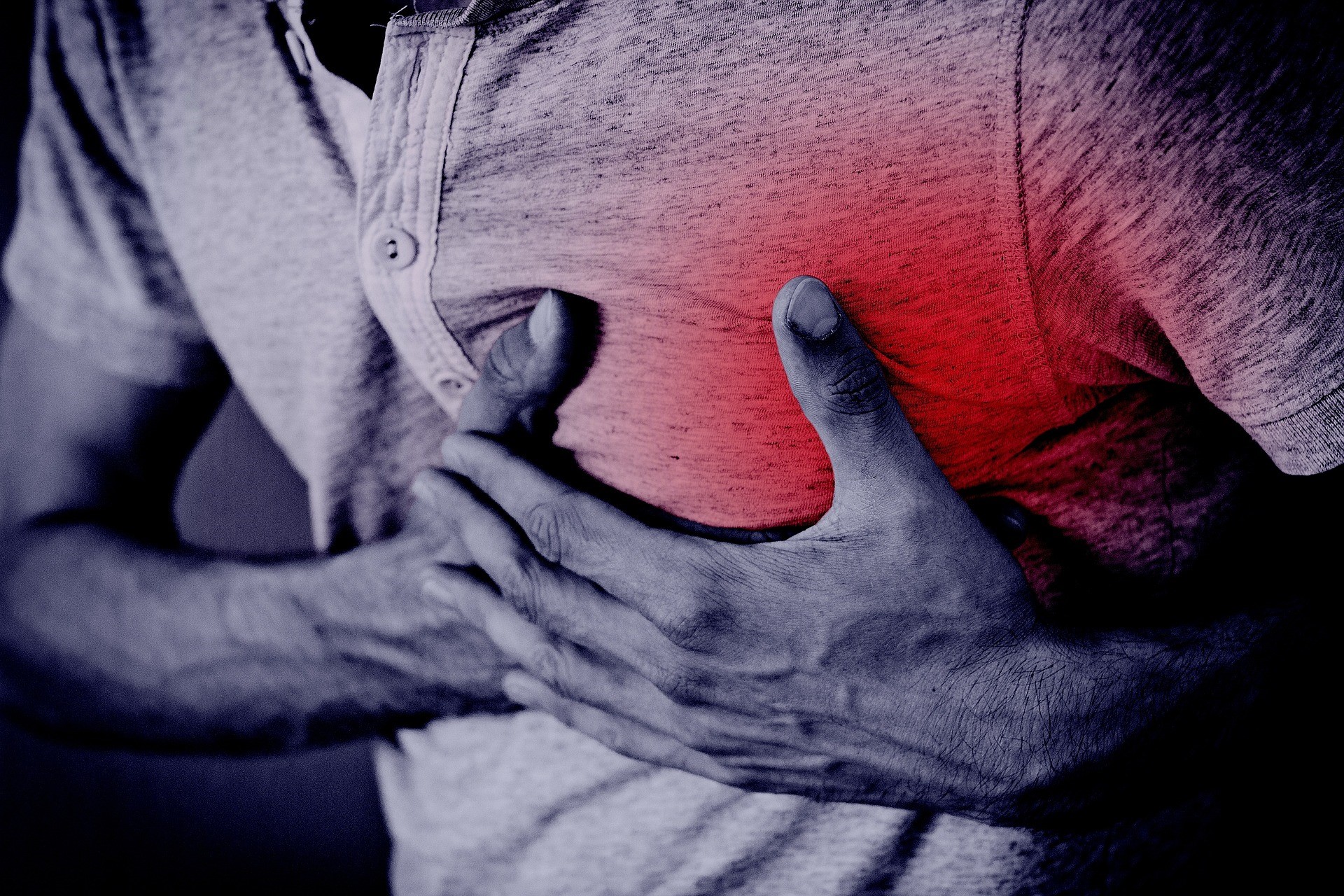Preventive Healthcare
What is Atherosclerosis: Symptoms, Causes, Diagnosis, Treatment and Prevention
1997 Views
0

What is Atherosclerosis?
Atherosclerosis is a condition that affects millions of people around the world. Atherosclerosis is often referred to as the "hardening of the arteries". It occurs when fatty deposits build up in your artery walls, causing them to become narrow and less flexible. This can lead to serious health problems like heart attack and stroke. In this article, we will delve into the symptoms, causes, diagnostic tests and treatment options available for atherosclerosis.
Symptoms of atherosclerosis
-
The symptoms of atherosclerosis can vary depending on which arteries are affected. In some cases, there may be no symptoms at all until the condition becomes more severe.
- One common symptom of atherosclerosis is chest pain or discomfort known as angina. This occurs when the heart doesn't get enough blood and oxygen due to narrowed or blocked arteries.
- Other possible atherosclerosis symptoms include shortness of breath, fatigue, weakness or numbness in your legs or arms, difficulty speaking or understanding speech (if it affects blood flow to your brain), sudden trouble seeing through one eye or both eyes (if it affects blood flow to your eyes), erectile dysfunction (in men) and even kidney failure if it affects renal arteries.
Causes of atherosclerosis
- Atherosclerosis is primarily caused by the buildup of plaque in the arteries. Plaque is formed from substances such as cholesterol, fat, and calcium that accumulate over time along the artery walls. This accumulation can narrow and harden the arterial walls, restricting blood flow to organs and tissues throughout the body.
- High levels of LDL or "bad" cholesterol are a major contributor to plaque formation. When there's too much LDL in your bloodstream, it can begin to stick to your arterial walls, creating blockages. Other factors that contribute to atherosclerosis include high blood pressure, smoking tobacco products (including e-cigarettes), obesity or being overweight, insulin resistance or diabetes and ageing.
- Inflammation also plays an important role in atherosclerosis development because it causes damage within the artery walls which triggers immune cell response resulting in further inflammation and contributing more toward plaque formation.
- A family history of heart disease may increase one's risk for developing this condition as genes can play a significant role in determining how much cholesterol our bodies produce.
Diagnosis of atherosclerosis
- Diagnosing atherosclerosis is crucial to prevent the condition from progressing and causing serious health complications. Atherosclerosis can be diagnosed through various tests, including blood tests, imaging tests, and physical exams.
- Blood tests are useful in measuring cholesterol levels as well as other factors that may contribute to atherosclerosis such as C-reactive protein (CRP) and homocysteine. Elevated levels of these markers indicate an increased risk of developing atherosclerosis.
- Imaging tests like ultrasound or angiography can detect blockages or narrowing of arteries caused by plaque buildup. These noninvasive procedures allow doctors to visualize the extent of damage caused by atherosclerosis.
- Physical exams involve listening for abnormal sounds in the arteries using a stethoscope and checking for weak pulses which may suggest arterial blockage. Early detection through regular check-ups and screenings is key in preventing severe complications from atherosclerosis.
Treatment of atherosclerosis
- The treatment of atherosclerosis depends on the severity and location of the disease. In mild cases, lifestyle changes such as regular exercise, a healthy diet, quitting smoking and managing stress can slow or even reverse the progression of the condition.
- In more advanced cases, medication may be necessary to reduce cholesterol levels, control blood pressure and prevent blood clots. Some common medications used for atherosclerosis include statins, beta-blockers and antiplatelet drugs.
- In some cases where lifestyle changes and medication are not effective in treating atherosclerosis, surgical procedures may be required. Angioplasty is a minimally invasive procedure that involves inserting a catheter with a balloon at its tip into an artery to widen it. Stents can also be inserted to keep the artery open.
- If there is complete blockage in an artery due to plaque buildup or if multiple arteries are blocked causing severe atherosclerosis symptoms such as chest pain or shortness of breath - bypass surgery may be necessary. This involves creating new pathways around the blocked areas using veins from other parts of the body.
Prevention of atherosclerosis
- Preventing atherosclerosis is important for maintaining good cardiovascular health. There are several ways to prevent the build-up of plaque in your arteries, including making lifestyle changes and taking medications prescribed by your doctor.
- One of the most effective ways to prevent atherosclerosis is by eating a healthy diet. This means consuming plenty of fruits, vegetables, whole grains, and lean protein sources like fish and chicken, and limiting saturated fats and processed foods.
- Regular exercise also plays an essential role in preventing atherosclerosis. Aim for at least 30 minutes of moderate exercise most days of the week to improve circulation and reduce inflammation throughout the body.
- Another way to lower your risk of developing atherosclerosis is by quitting smoking or never starting in the first place. Smoking damages blood vessels and increases inflammation which can lead to plaque build-up over time.
- Managing conditions such as high cholesterol levels, hypertension (high blood pressure), diabetes, obesity, and stress can also help prevent atherosclerosis from developing or worsening.
Atherosclerosis and lifestyle changes
- One of the most effective ways to prevent and manage atherosclerosis is through lifestyle changes. These changes can slow down or even stop the progression of the disease, reduce atherosclerosis symptoms, and improve overall health.
- Quitting smoking is essential for anyone with atherosclerosis. Smoking damages arteries and promotes plaque buildup in blood vessels leading to heart attacks and strokes. Giving up cigarettes can significantly reduce your risk of further damage to your arteries.
- Consuming a healthy diet that includes plenty of fruits, vegetables, whole grains, lean proteins, and healthy fats can help lower cholesterol levels as well as blood pressure; two major contributors to atherosclerosis development.
- Regular exercise helps keep your weight under control while also improving circulation throughout the body. Aim for at least 30 minutes of moderate-intensity physical activity each day such as walking or cycling.
Conclusion
Atherosclerosis's causes are many, as discussed in this blog. It is a serious health condition. It requires immediate attention. Atherosclerosis symptoms can be subtle and easily ignored, but the consequences of ignoring them can be severe. Therefore, it's crucial to know the causes and risk factors of atherosclerosis and take necessary preventive measures.
Maintaining a healthy lifestyle through regular exercise, a balanced diet, avoiding smoking and reducing stress levels can help prevent the development of atherosclerosis. Additionally, early diagnosis with proper medical treatment can greatly reduce its harmful effects on our bodies. You can rely on Metropolis Healthcare Labs for diagnosing diseases through blood testing. Our state-of-the-art diagnostic testing facilities offer quick and accurate results. Click here to book a home visit or to learn more about our services.























 WhatsApp
WhatsApp
